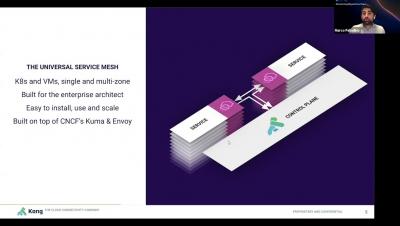Systems | Development | Analytics | API | Testing
%term
Week of Testing Day 3: Installing k6 and running a load test
Live Testing Real Devices Using Dev Tools in Sauce Labs
Distributed Multi-Cloud and Multi-Cluster Service Mesh | Kong Mesh
Ship healthier code with Codecov and Bitrise - How to establish a code coverage benchmark | WEBINAR
Increase Data Team Efficiency With a Modern Data Stack
For high-growth companies, building a focused, priority-driven analytics team is mission-critical.
Top 3 Challenges in Cross Browser Testing and How to Tackle Them
Since the beginning of the internet era, browsers and websites have lived co-dependently. Starting from the internet explorer, then to the Mozilla project and now to at least six major browsers in the market, we have evolved quite well. But browsers and web development technologies do not seem to be in a happy relationship. To ease out the web development, developers think of new ways to have a dedicated and organised system of sustainable websites such as subgrids. Result?
How to Select the Best Cross Browser Testing Tool
Cross browser testing can be a real headache for a software tester. You may have tested your application on the latest versions of Chrome, Firefox, and Edge, but more often than not, some browsers such as Internet Explorer, Opera Mini, UC Browser get missed out. As a result of this, a portion of your users will not be able to view your product properly. Thanks to the cross-browser testing tools available in the market, now the cross-browser testing efforts can be significantly reduced.
5 features that make Testsigma the best cross browser compatibility testing tool
Cross Browser Testing is adopted by developers in order to ensure that an application works as intended across all combinations of devices and browsers. This will help developers to reveal issues that might have been left ignored or uncovered otherwise. Each browser comes with an exceptional blend of web support but also has certain drawbacks.
How to Log API Traffic from Envoy Proxy and Monitor Metrics with Moesif
Envoy is a high-performance C++ distributed proxy designed for microservices and service-oriented architecture, as well as a scalable communication bus and “universal data plane” designed for large scale service meshes. Envoy runs alongside every application and abstracts the network by providing common features in a platform-agnostic manner.











